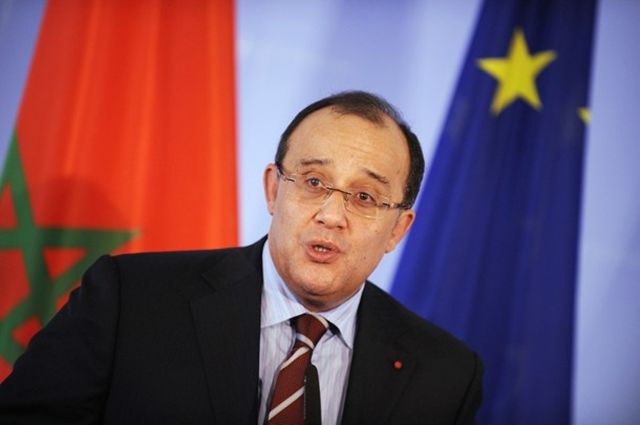
Al-Qaeda in the Islamic Maghreb and the Africa-to-Europe Narco-Trafficking Connection
Publication: Terrorism Monitor Volume: 8 Issue: 43
By:

Of the various Salafi-Jihadi militant groups currently operating, few have been as aggressive in their pursuit of financing as al-Qaeda in the Islamic Maghreb (AQIM), which has added narcotics trafficking to its staples of kidnapping for ransom as well as the smuggling of cigarettes and fuel in the wild and poorly patrolled border regions of the Sahel/Sahara region.
During a recent visit to Spain, Moroccan Foreign Minister Taieb Fassi Fihri expressed his alarm over the rise in cocaine shipments smuggled through Morocco to Europe (Jeune Afrique, November 3). Morocco’s Minister of Interior Taieb Cherkaoui announced the arrest of 34 people in October, all members of an AQIM-affiliated cell with connections in South America, Africa and Spain (Le Matin, Oct 17). In late 2009, a Boeing 727 full of drugs and other illegal products landed in a remote northeastern area of Mali. It was a clear signal of the increasing importance of this region for global narco-trafficking (AFP, December 11, 2009; Le Figaro, March 19; see also Terrorism Monitor, January 7). Then in December 2009, three citizens of Mali alleged to be AQIM associates were arrested in Ghana after they told undercover agents of the American Drug Enforcement Agency (DEA) they had agreed to transport cocaine through Africa to Europe for AQIM and the Fuerzas Armadas Revolucionarias de Colombia (FARC – Revolutionary Armed Forces of Colombia), demonstrating an emerging reality which links terrorist groups and narco-traffickers in a new, heterodox and business-oriented alliance (VOA News, December 29, 2009; Le Parisien, December 22, 2009).
The Routes: Africa as a Safe-Haven for Narcotics Traffickers
Drugs are smuggled from Latin America to the rich European market through the countries of West Africa and the Maghreb region (Le Figaro, November 20, 2009). The Sahel region has emerged as the main hub for this trafficking. The United Nations Office on Drugs and Crime (UNODC) estimates that between 50 and 60 tons of cocaine from Latin America goes to Europe through the Sahel area every year (El Pais, March 15). Drugs arrive from Colombia, by far the most important among Latin American state in this sector, but also from other countries such as Peru, Bolivia, Venezuela and Brazil. These loads are dispatched to western Africa, which provides a perfect landing place due to the low capacity of many countries in the region in controlling their borders and national territories. Moreover, the endemic corruption among officials makes it even easier for narco-traffickers to operate in these spaces. The most important geographical targets are:
• Guinea Bissau, a very small and poor state but a sort of global hub for drug smuggling (UOL Noticias, December 12, 2007).
• Gambia (Jeune Afrique, June 15).
• Mauritania, which is trying to increase its effectiveness in reducing such trafficking (AFP/Rim24, November 3).
• Mali (Le Pays, November 17, 2009).
AQIM’s Role: Geographical Know How, Security and Stable Income
Drug smuggling activities have often been an important tool for terrorist groups to finance themselves. Islamist militants, however, are faced with Islamic injunctions against the use of narcotics. Although considered haram (illicit), according to Islamic beliefs and sensibility, the need to find remunerative ways to fund operations allows these groups to have a sort of “ideological flexibility” in which the importance of the aim can reduce the impact of the impurity of the means, a typical takfiri practice. More traditional Islamist groups have been reluctant to get involved in the narcotics trade, while some others have strayed far from traditional Islamic mindsets. Islamist groups in the Maghreb have already played a role in the drug trade – in particular the Salafist Group for Preaching and Combat (GSPC), predecessor of AQIM, was already involved in these activities; AQIM could, therefore, count on a certain experience in the trade. AQIM has strongly increased its involvement in illegal trafficking since 2008. There has been a change in the intensity and in the relative importance of these activities for this group. Weakened by Algerian counterterrorism activities and a decline in popular support, the group found itself with few members and poor financial resources. At that point, parasitic economic practices became key activities of the group (see Terrorism Monitor, January 28).
AQIM also offers security for traffickers operating in the region. AQIM taxes the shipments and provides geographical guidance and transport protection. Its members and the galaxy of local, small affiliated groups – not necessarily Islamist but mostly local criminal gangs seeking new business opportunities – have a deep knowledge of the Sahel/Sahara region, which is geographically harsh and difficult to control for national authorities. The lack of strong state authority and the importance of personal, tribal and ethnic loyalties make it easier to corrupt officials, a fundamental step to guaranteeing the passage of these illegal goods. The increasing regionalization of the movement – an unforeseen effect of the successful action of Algerian authorities against it – and its pluralization – AQIM is mainly Algerian but is opening up to young Islamists coming from other Sahel countries – make it easier for AQIM to operate in the countries of the Sahel region (see Terrorism Monitor, June 24; March 26).
AQIM protects the shipments with their arms and provides the vehicles to transport them to Morocco, which is the main African terminal (L’Economiste du Maroc, October 19). They are also involved in the logistical organization of the transports through the Mediterranean, dealing with criminal groups specialized in illegal sea transportation to the southern European coasts. The supplies are shipped to Spain, the main doorway for these drugs and the main center of distribution in Europe (El Pais, March 1).
Conclusions
Taking a leading role in narcotics trafficking through Africa allows AQIM to finance its operations through a remunerative, constant and relatively stable source of income (since the demand for drugs is both stable and high). It helps AQIM pay for weapons and necessary equipment and, lastly, to pay its members well and regularly, an important consideration in making AQIM more attractive to local youth.





